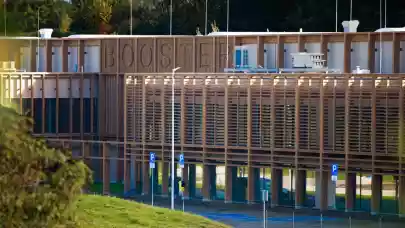
At the end of June 2022, Warsaw’s total office stock amounted to approximately 6.27 million sqm. Occupier activity accelerated while the vacancy rate continued its downward trend in H1 2022, according to Cushman & Wakefield.
More than 129,000 sqm of new office space was delivered to the Warsaw market in the first half of 2022. The largest completions included the Forest Tower, SKYSAWA and Lixa C.
The second half of 2022 will see another 105,300 sqm delivered in three office buildings. At the end of the second quarter of 2022, Warsaw’s development pipeline scheduled for completion in 2022-2025 comprised approximately 234,000 sqm. In addition, developers stepped up project preparations across all stages, from land acquisition to obtaining building permits.
Vacancy rate falls for the second quarter in a row
Warsaw’s vacancy rate remained under upward pressure since the outbreak of the pandemic. Despite the relatively healthy supply levels in the first half of 2022, the vacancy rate edged down to 11.9% in the second quarter, down by 0.3 pp quarter-on-quarter and 0.5 pp year-on-year. Office availability amounted to 747,700 sqm at the end of June, down by close to 2% year-on-year.
“The growing leasing activity also translated into net absorption which came to 157,900 sqm in mid-2022, surpassing 2021’s total. Net absorption exceeded the new supply in January-June 2022. Looking ahead, we expect the vacancy rate to continue its downward trend in the coming quarters given the recovery in occupier activity, limited new supply and a relatively high level of pre-lets in office buildings scheduled for completion in 2022,” says Jan Szulborski, Senior Consultant, Consulting & Research, Cushman & Wakefield.
Rental market is recovering
Total leasing activity in Warsaw amounted to 479,400 sqm in the first half of 2022, up by 94% on the same period in 2021 and up by 19% compared to 2019.
The largest deals in the first quarter included PKO BP’s pre-let in SKYSAWA I&II, PEKAO’s pre-let in the Forest Tower, the ING Group’s renegotiation and expansion of its lease in Plac Unii, a renewal by a banking services company in Generation Park X, and Generali relocating to the Jabłonowski Palace. Notable transactions in the second quarter saw Samsung Electronics Polska renegotiate its lease in the Warsaw Spire, KOWR renegotiate its deal in the Karolkowa Business Park and an IT company renew its lease in the Warsaw Financial Center.
Take-up was powered by the improving rental market and the build-up of transactions closed by large tenants from the financial services sector in the first quarter of the year. As the pandemic began to ease, some tenants who previously sat on the sidelines went ahead with their office deals. This is confirmed by 392 transactions finalised in the first half of 2022, representing a year-on-year increase of close to 58%. Renewals and new leases accounted for 48% and 45% of the total take-up, respectively, followed by expansions which made up the remaining 7%.
“We suspect that demand for office space in 2022 in Warsaw will continue its gradual upward trend relative to 2021. The downside risk to this scenario is that occupier sentiment around investment plans in Poland may change or worsen in the coming quarters due to geopolitical uncertainty and the expected shrinking office availability due to a lack of new supply,” adds Joanna Blumert, Head of Occupier Services Warsaw, Office Agency, Cushman & Wakefield.
Rents remain under upward pressure
Geopolitical uncertainty and rising construction and fit-out costs have pushed office rental rates up. In the second quarter of 2022, prime office rents stood at €22.00-26.00/sqm/month in the Centre and at €13.50-16.50/sqm/month in non-central locations.
Projects in the pipeline are currently experiencing the strongest upward pressure on headline rents due to their greatest exposure to both rising construction and fit-out costs. Landlords are also showing increased flexibility in negotiations of financial terms such as lease lengths, rent-free periods and fit-out contributions.
“Looking ahead, we expect costs to continue to put upward pressure on headline rents, further fuelled by the gradually shrinking availability of office space in prime locations and buildings,” concludes Jan Szulborski.



